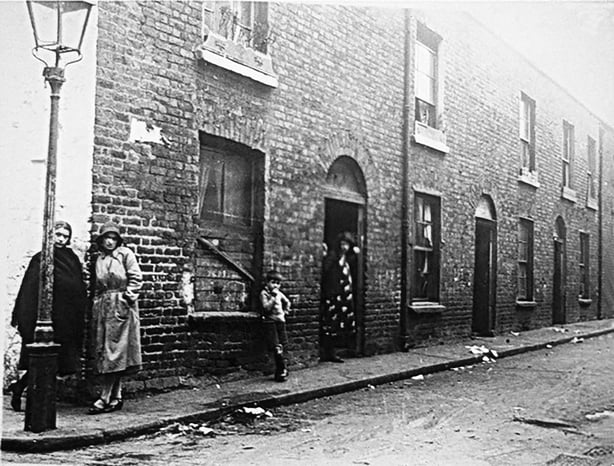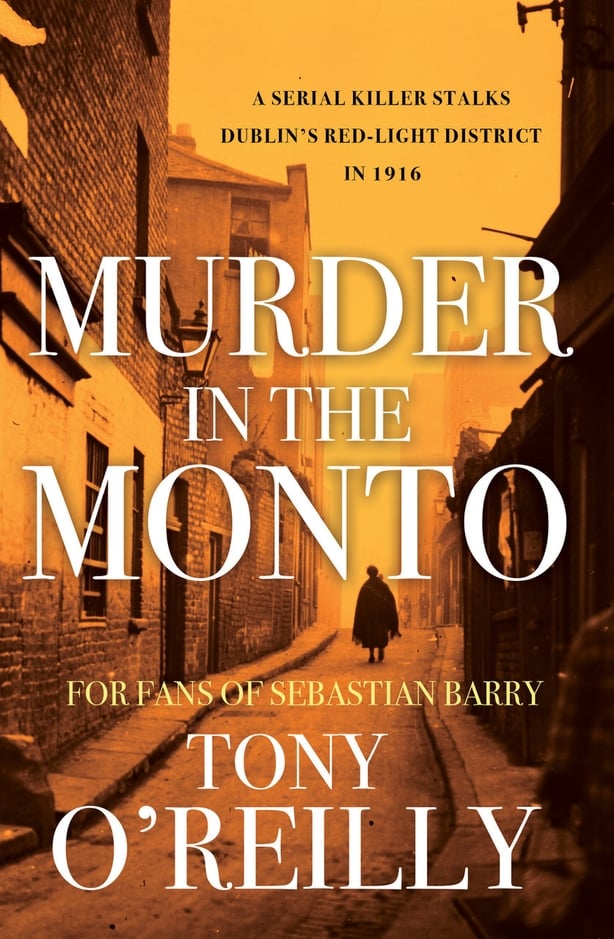We're delighted to present an extract from Murder In The Monto, the debut historical novel from Tony O'Reilly.
Set in the immediate aftermath of the 1916 Rising, in this extract our protagonist Christopher Flinter - named after the author’s own grandfather - wakes in his cell in Dublin Castle. His return from the Belgian front to avenge his brother’s death has him left facing possible execution for desertion...
Christopher’s eyelids flicker as he struggles to open them, but even that tiny movement brings pain. He smells damp, musty earth. For a split second he thinks he is back in Ypres, in the dugout, waiting for a German attack and expecting the shrill whistle calling him to repel yet another onslaught on the trench. Then the whole disaster comes slowly back to him and he raises himself up on his side.
He is lying on a hard bed suspended from a wall by rusted chains. The wall is made from granite blocks which are stained green with what looks like algae. The room, or cell, is less than ten feet square. Across from the bed there is a wooden crate and on top of it is a solitary candle with a weak but steady flame. The floor is compacted earth that looks damp in the light of the candle.
He has lost track of time. There is no window in the cell and he has been sleeping heavily, for the first day barely conscious. He knows a couple of days have passed as someone has been leaving and taking away away uneaten plates of food — and lighting the candle.
The pain in his head forces him back down onto the bed and he has to shut his eyes. When he opens them again and looks around this time, it’s without moving his head. The door opposite the bed is barely five foot in height and made from stout wood with a small horizontal hatch near the top. The walls are curved in a gentle arc. There is no window so he presumes that he is underground. At first, he reckoned the soldiers had brought him to the prison in the Royal Barracks, but from what he remembers of the barracks there were no cells underground. It’s definitely not Beggar’s Bush barracks. He did his basic training there and knows every square inch of it.

As his memory of the journey on Saturday night came back to him, he found it too confusing to try and identify which barracks he has ended up in. Some of the soldiers clambered into the truck after him and sat on either side. Every so often one of them lashed out with his boot, calling him a dirty deserter. One of the men flicked a lit cigarette at him but he hardly felt the burning tip that hit him full in the face and exploded in a shower of sparks. He didn’t care about any of that. He knew he would now be summarily court-martialled and shot — while Tommy Sherry would still be walking around, alive. Sooner than he expected the truck came to a standstill. He recalled muffled voices coming from the front, then the truck seemed to turn around in a complete circle. Maybe they were afraid of an ambush from some stray rebels.
Eventually they reached an obstacle where they had to stop and the driver spoke with somebody, then the noise as the trucked pulled into a cobbled area. The soldiers were ordered out. Hands dragged him to the back of the truck but, before he was pushed out of it, a cloth bag was pulled over his head. He was half-dragged, half-pushed across some cobblestones and into a building, through a maze of corridors and brought down at least one flight of stairs and, without removing the bag, flung into the cell, head first, where he stumbled awkwardly and crashed into the wall opposite. He must have been knocked out, but for how long? At least the soldiers had the decency to throw him onto the bed.
Miserable, hungry and cold, he waits again for the inevitable summons. Maybe they’ll skip the court martial and just put him up against the wall and shoot him. On the fishing boat over from Tenby, he had read in a newspaper that General Maxwell had been appointed overall commander in Ireland. It was well known that Maxwell had been responsible for the slaughter of most of his troops by the Turks at Gallipoli and his career had been blighted. Now, no doubt, he would sort out the Irish rebellion in his own individual style and, as a deserter, Christopher would be the first to be shot.

Murder In The Monto is published by Poolbeg Books

